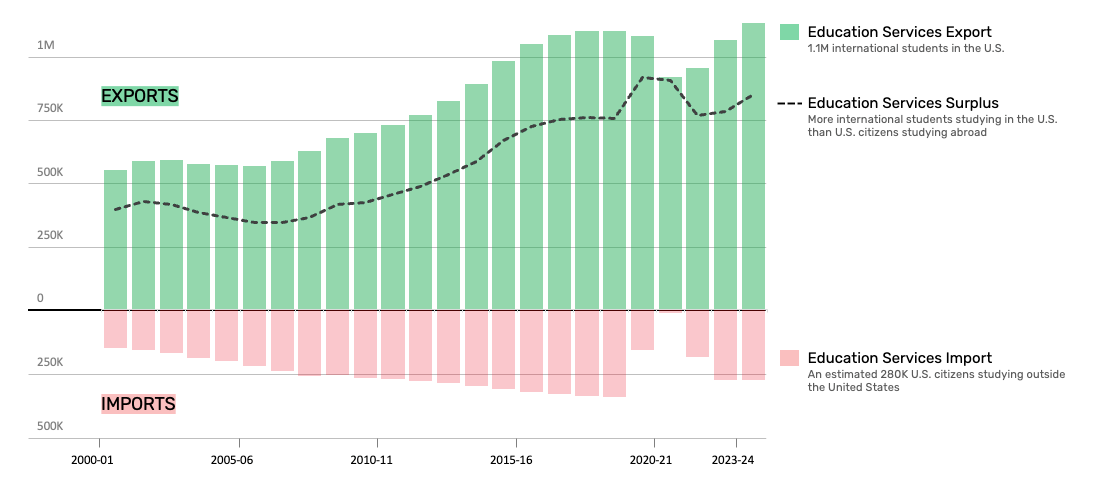While there is continued debate around trade deficits, higher education is one sector that continues to dominate global trade markets. International students don’t just enrich campuses or fill needed positions, they are one of the country’s most powerful trade surpluses. International education represents a $56 billion trade surplus for the US. This figure is aligned with key goals of the current administration’s economic strategy.
According to the Washington Post analysis of the Bureau of Economic Affairs data, the US sold more educational services abroad than natural gas and coal combined.
Furthermore, the US hosted more than three times as many international students as American students studying abroad, making education one of our most successful global exports.

Source: Shorelight Analysis of the Institute of International Education Open Doors Data set
As reported by NAFSA, International students contributed a record $44 billion to the US economy in the 2023–2024 academic year. Their presence also supported over 378,000 US jobs, from higher ed to housing to hospitality.
America’s universities are one of its greatest soft power advantages for this reason.
Sources:
NAFSA Economic Impact Data
IIE Open Doors

